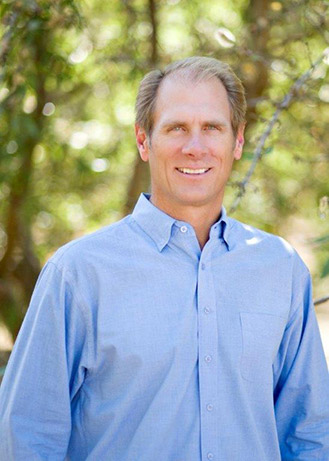
Involvement in student organizations prepares alumnus for leadership role

Under ordinary circumstances, package goods and foods sold in grocery stores, and other retail outlets function on a well-balanced system that allows retailers to store just enough inventory to serve customers without overloading backrooms and warehouses. When people started buying excessive amounts of toilet paper, hand sanitizer, and other products at the beginning of the pandemic, that balance collapsed and left store shelves empty. Particularly for perishable foods like dairy products, explained John Talbot ’81, CEO of California’s Milk Advisory Board, “the resulting increased demand through retail supermarkets has been more than inventory management systems can handle, and as we’ve all seen, many essential items are out of stock on store shelves.”
Talbot’s work typically focusses on marketing and promotion of dairy products, but since the onset of the pandemic his organization has been aiding food manufacturers and retailers in resolving out-of-stock issues. They’re also promoting a number of e-commerce platforms like Amazon Fresh and Instacart that offer online ordering and grocery delivery, helping alleviate some of the strain on traditional retail. “The area that has grown most explosively is what is called ‘click and collect’ which is online ordering and curbside pickup at your local store. Many supermarket chains now offer this,” he said. The organization is also responding to the effect of unemployment on food banks, helping farmers navigate the complicated logistics. “While a farmer may want to donate milk to a food bank, it still needs to be trucked to a plant to be pasteurized, homogenized, and packaged. Then it needs to be trucked to the food bank, many of which don’t have adequate cold storage to protect the product,” he said. “In some cases, instead of donating milk, we are actually working with vendors to donate cold storage equipment because that will have longer term benefits to food banks and consumers.”
What Talbot enjoys most about his job is “working with dairy farmers to help them understand the world of marketing consumer products.” He likens his role as a leader working to build relationships with his team to his experience with student organizations as a Wooster student. “At a very early age I was able to set goals for an organization, build a team, develop programs, manage a budget, and most importantly learn how to deal with people,” he said, acknowledging that he considered extra-curricular activities his unofficial major. “I can’t imagine I would have gotten the chance to take on so many student leadership roles at any other school. These leadership experiences, from the Student Activities Board, to Campus Council, to my fraternity, are what made me who I am today,” he said.
Officially majoring in geology because of personal interests, Talbot chose Wooster because he knew it would prepare him for graduate school and because as a fourth generation Wooster student, the experience of other members of his family encouraged him including both his parents John Talbot ’51 and Carol (Rustemeyer) ’51. As a student, he drew inspiration from faculty and staff who supported him. “Fred Cropp in geology had a passion and enthusiasm for understanding the world around us that has inspired me my entire life,” he said. With Talbot’s involvement in student activities programs, Hal Clossen, then director of the Lowry Center, “became my first real mentor,” he said, adding, “Hal taught me more about managing people and guiding an organization than I could have ever learned in any class.”
As businesses are restarting, Talbot and his organization continue to work with farmers and vendors to understand how the markets are changing. “By far the biggest impact of COVID-19 will be on the restaurant industry,” he said. “There will be a host of new sanitation, food handling, and food serving guidelines restaurants will have to follow. With social distancing, seating capacity may be severely limited and that will have a direct impact on revenue and ultimately what consumers have to pay for a dining experience. For full-serve restaurants, seating capacity may go down as much as 50%.” Though continuing to address ongoing challenges that affect different aspects of the dairy industry, Talbot does recognize a positive change: “Families are back together again, preparing home-cooked meals and enjoying the return to family time and comfort food.”
Posted in Alumni on June 24, 2020.
Related Posts
Related Areas of Study
Earth Sciences
Geology, environmental geoscience, geophysics, and other classes that explore Earth and the impact of humans
Major MinorGeology
Start research in your first year and graduate with a strong foundation in the Earth Sciences.
Major Minor

